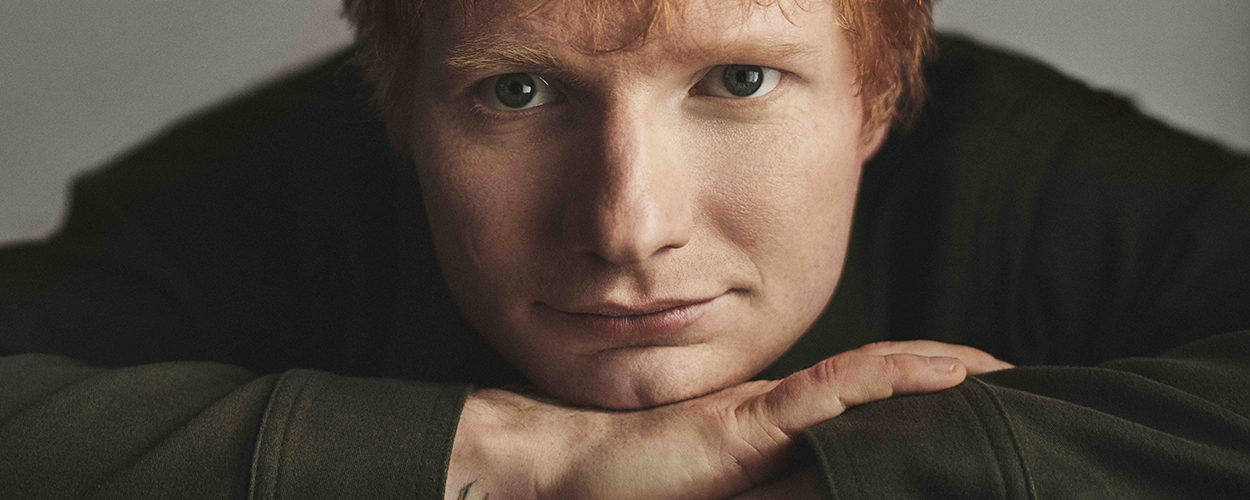This website uses cookies so that we can provide you with the best user experience possible. Cookie information is stored in your browser and performs functions such as recognising you when you return to our website and helping our team to understand which sections of the website you find most interesting and useful.
Artist News Business News Labels & Publishers Legal
Ed Sheeran’s legal team has another go at getting Thinking Out Loud song-theft lawsuit dismissed
By Chris Cooke | Published on Monday 17 October 2022

Ed Sheeran’s legal team last week had one last go at trying to stop one of the song-theft lawsuits relating to his song ‘Thinking Out Loud’ from proceeding to trial, urging the judge overseeing the case to reconsider a recent decision he made about the copyright dispute.
It’s alleged that Sheeran ripped off the Marvin Gaye song ‘Let’s Get It On’ when he wrote ‘Thinking Out Loud’. Based on those allegations, the estate of ‘Let’s Get It On’ co-writer Ed Townsend sued Sheeran for copyright infringement. And once that litigation was underway, a company called Structured Asset Sales, which also has a stake in the ‘Let’s Get It On’ copyright, filed its own lawsuit.
It was on the latter legal battle that judge Louis Stanton recently made ruling.
The Sheeran team had urged the judge to dismiss the SAS lawsuit via summary judgement, arguing that the elements shared by ‘Thinking Out Loud’ and ‘Let’s Get It On’ are common musical segments that are not protected by copyright in isolation. That was an argument also used in another song theft legal battle involving Sheeran, the one in the UK over his song ‘Shape Of You’.
In a ruling last month, Stanton noted that both sides in the dispute agree that the shared elements are “commonplace and unprotectable”. However, the real dispute is over how those elements are combined in the two songs. So the key question is as follows: is the way Gaye and Townsend combined those elements in ‘Let’s Get It On’ protected by copyright?
That question, Stanton concluded, can only be answered by a jury. “The law does not support Sheeran’s contention that the combination of ‘Let’s Get It On’s chord progression and harmonic rhythm is insufficiently original to warrant it copyrightable”, he wrote in his ruling last month.
“There is no bright-line rule that the combination of two unprotectable elements is insufficiently numerous to constitute an original work”, he added. “Moreover, where, as here, the parties’ experts disagree as to whether a particular musical element is original, summary judgment is inappropriate”.
Which means that “although the two musical compositions are not identical, a jury could find that the overlap between the songs’ combination of chord progression and harmonic rhythm is very close. Accordingly, questions remain that are not resolvable by summary judgment, but require trial”.
However, according to Billboard, Sheeran’s legal team have urged Stanton to re-think that conclusion, arguing that if the outcome of this case is that the way Gaye and Townsend combined some common musical elements is protected by copyright, that will “strangle creation”.
Lawyer Don Zakarin writes: “Affording copyright protection to a combination of only two unprotectable basic musical building blocks, such as the ones at issue here, would undermine a central purpose of copyright law – which is to encourage the creation of new works – and would instead strangle creation”.
“No one can or should be able to claim the exclusive right to a chord progression and the unremarkable and unprotectable manner in which it is performed”, the Sheeran legal team continues. “Defendants respectfully submit that the order overlooked these critically important legal considerations”.
It seems unlikely that Stanton will change his mind at this point and issue the summary judgement dismissing the SAS case. Though it’s worth a try I guess. If that doesn’t happen, Sheeran’s lawyers have asked for permission to file a fast-track appeal in relation to the lawsuit.
Responding to the latest development in this legal battle, SAS owner David Pullman told Billboard that the new legal filing from Team Sheeran was simply “confirmation and validation of just how important [last month’s] decision was”, adding that he “looks forward to more success in this case”.





